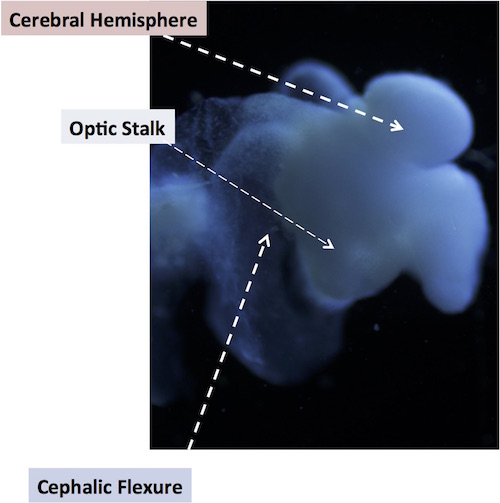 Medicine
Medicine
What Was That About Being "Anti-Science"?

This is a scientific achievement, and an ethical one: Scientists have used skin cells to build a rudimentary human brain. These were induced pluripotent stem cells. From the story in The Guardian:
An almost fully-formed human brain has been grown in a lab for the first time, claim scientists from Ohio State University. The team behind the feat hope the brain could transform our understanding of neurological disease.
Though not conscious the miniature brain, which resembles that of a five-week-old foetus, could potentially be useful for scientists who want to study the progression of developmental diseases. It could also be used to test drugs for conditions such as Alzheimer’s and Parkinson’s, since the regions they affect are in place during an early stage of brain development.
The brain, which is about the size of a pencil eraser, is engineered from adult human skin cells and is the most complete human brain model yet developed, claimed Rene Anand of Ohio State University, Columbus, who presented the work today at the Military Health System Research Symposium in Fort Lauderdale, Florida.
May it be so. Now let’s analyze what this breakthrough could portend.
First, no need for unethical human cloning to derive cells for use in research and drug testing.
Second, no need for fetal farming for experimentation and organ transplants.
Finally, no need for Planned Parenthood dismemberments of fetuses killed in a “less crunchy” way.
Remember when embryonic stem cells were OUR ONLY HOPE? And how those of us who said that particular meme wasn’t true were “anti-science”?
